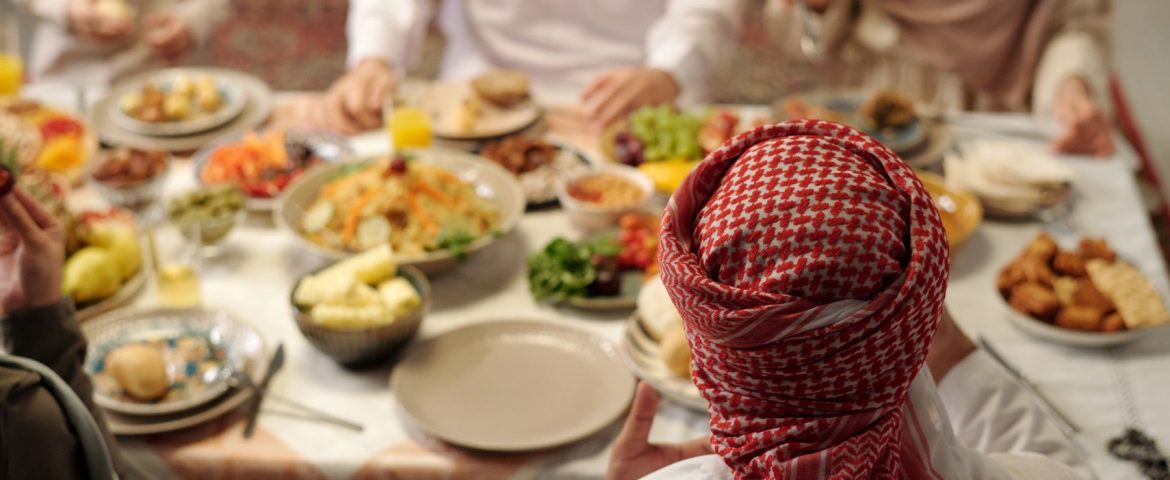Saudi Arabia offers a rich and flavorful cuisine that reflects its deep traditions and hospitality. Sharing a meal is an important part of the culture, and understanding local dining etiquette will make your experience more enjoyable.
Whether you’re eating in a restaurant, at a traditional gathering, or in someone’s home, knowing a few customs will help you feel comfortable and show respect for Saudi traditions.
Hospitality and Sharing Meals
Hospitality is a key part of Saudi culture, and guests are always treated with generosity. If you are invited to a local home for a meal, consider it an honor.
It is common for meals to be served on a large shared platter, especially traditional dishes like Kabsa (spiced rice with meat) or Mandi (slow-cooked lamb or chicken with rice).
Before eating, you may be offered Arabic coffee (qahwa) and dates. This is a welcoming gesture, and it’s polite to accept at least one cup. If you’re full, slightly shaking the cup while returning it to the host signals that you don’t want more.
Table Manners and Eating Customs
Saudi dining etiquette has a few important rules that guests should follow. First, always eat with your right hand, as the left hand is considered unclean in local culture. This applies especially when eating traditional meals that don’t require utensils.
If dining in a group, wait for the host to begin eating before you start. It’s also polite to take food from the side of the dish closest to you rather than reaching across the table.
If eating a shared meal on the floor, sitting cross-legged or kneeling is common. Avoid pointing your feet at others, as this is considered impolite.
Respecting Local Customs in Restaurants
Saudi restaurants range from luxurious dining establishments to small, family-run eateries. In many places, meals are served in family sections for mixed groups and men’s sections for male diners. Be sure to follow seating arrangements accordingly.
Tipping is not mandatory in Saudi Arabia, but leaving 10-15% in restaurants is appreciated for good service. When ordering, be mindful that pork and alcohol are strictly forbidden, and most meals follow Halal guidelines.
Many restaurants serve large portions, and sharing food is common. If you’re eating with locals, don’t be surprised if they encourage you to try different dishes — it’s a sign of generosity.
If you’re full, politely express gratitude but avoid refusing too soon, as your host may insist.


